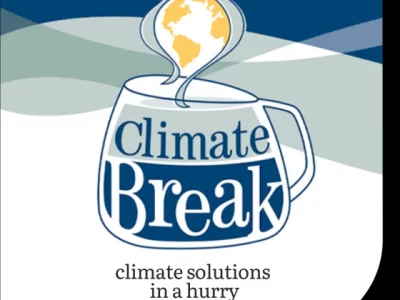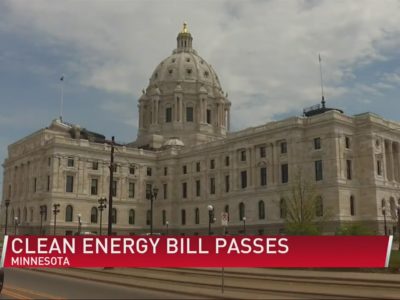Unraveling LA’s Hydrogen Combustion Experiment
Combusting hydrogen could keep natural gas plants online, but they won’t be “green” for years––if ever.
This is Part II of “Unraveling Hydrogen,” a series covering the basics of hydrogen policy. The first post, introducing the series and covering how hydrogen is produced, is available here. Led Zeppelin’s eponymous 1969 album featured an iconic photo of the Airship Hindenburg going up in flames above Lakewood, New Jersey in 1937. By all accounts, it took between 32 and 37 seconds from the first signs of a fire for the dirigible to come plummeting to the ground...
CONTINUE READINGClimate Policy at the Turn of the Century: The Death of “Plan A”
The original plan involved top-down global and US emission limits. They never happened.
When the campaign to cut carbon emissions began in the last decade of the 20th Century, there seemed to be a clear path forward. International negotiations would begin with a framework convention, followed by a later global agreement capping carbon emissions. Within the US, Congress would enact legislation cutting carbon emissions. By the end of the first decade of the new century, both parts of this top-down strategy had collapsed, and new strategies had begun to coales...
CONTINUE READINGOil’s Fate is in CA Voters’ Hands
A measure backed by the oil industry to overturn an oil and gas ban will appear on the ballot in 2024. There are lessons from the plastic bag ban referendum.
The impacts of oil and gas production on the environment and communities, particularly low-income communities of color, are well-documented. The health effects associated with living near oil and gas wells include asthma, nose bleeds, headaches, birth defects, cancer, and premature death. Oil and gas operations also pollute the air and water and contribute to climate change. Given these harms, it is no surprise that environmental and environmental justice advocates have ...
CONTINUE READINGNeed Quick Climate Solutions? Check Out Our “Climate Break” Podcast
Berkeley Law production also airing every Thursday on NPR-affiliate KALW in San Francisco
Climate change news is often quite depressing, with frequent stories on the science and ever-worsening impacts. What gets lost in this otherwise important coverage is the amazing and inspiring tales of innovation and solutions happening all around us, in every sector and walk of life. That's why Berkeley Law's Center for Law, Energy and the Environment (CLEE), in partnership with the UC Berkeley School of Journalism, launched the podcast Climate Break, which...
CONTINUE READINGThe Great-Great-Grandmother of Climate Science
Herein of the now-forgotten woman who discovered the warming effect of CO2.
The first climate science ever published was in 1856 by Eunice Newton Foote, who discovered that CO2 and water vapor trapped the sun’s heat. Her paper was read at the annual meeting of the American Association for the Advancement of Science. That paper, along with another paper of hers, were the only physics papers by an American woman for the next thirty years. She deserves recognition as part of Women’s History Month, begun yesterday. Foote was born in 181...
CONTINUE READINGWetlands Regulation in the Political Swamp
The Congressional Review Act remains bad for policy and worse for democratic deliberation.
Last December, the Biden administration issued a rule defining the scope of the federal government’s authority over streams and wetlands. Congressional Republicans vowed to overturn the rule, using a procedure created by the Congressional Review Act. If Congress is going to repeal something, it should be the Congressional Review Act rather than the Biden rule. The handwringing over the Biden rule is a textbook example of the knee-jerk reactions fostered by the Congr...
CONTINUE READINGCEQA and UC Berkeley Housing: Don’t Panic
The decision blocking student housing hardly represents new NIMBY weaponization.
Lots of screaming and yelling about last week’s Court of Appeal CEQA decision concerning student housing at UC Berkeley. The Court struck down the university’s plan for more student housing on the grounds that the final Environmental Impact Report did not adequately assess noise impacts from students. “The campus is dismayed by this unprecedented and dangerous decision to dramatically expand CEQA, and the campus will ask the California Supreme Court ...
CONTINUE READINGGood News from the Land of 10,000 Lakes
Earlier this month, Minnesota adopted a bold new clean energy plan.
The headline news is that Minnesota has adopted a 2040 deadline for a carbon-free grid. The headline is accurate, but the law in question contains a lot of other interesting features that deserve attention. Despite the law’s extremely unglamorous name (“Senate File 4”), this is a big step forward for the state, as well as evidence of how much difference it makes to unified party control of state government. I’ll begin by describing those features and then tur...
CONTINUE READINGShould There Be a ‘Non-Use’ Agreement on Solar Geoengineering?
Why I signed the call for a non-use agreement, and what that might mean for research.
Although I'm a newbie at the Emmett Institute, I have been working on geoengineering for a decade now. I have heard countless arguments over whether and how solar geoengineering could be useful in the struggle to manage climate change. I have seen deeply misleading claims by both its supporters and detractors, many trying to coopt the issues and victims of climate injustice to their case. So why have I signed up to an initiative by senior scholars from the social science...
CONTINUE READINGI’m With Paul
Krugman claims that climate action doesn’t mean an end to growth. He’s right.
In a recent column, Paul Krugman argued that cutting carbon emissions doesn’t have to mean an end to economic growth. He’s right about that. Carbon emissions and growth aren’t joined at the hip. He could have added that economic growth and quality of life don’t necessarily go together. The numbers are really clear about the disconnect between the trajectories of GDP and emissions. US emissions went down by around 15% between 2007 and 2019, while GDP per pers...
CONTINUE READING













